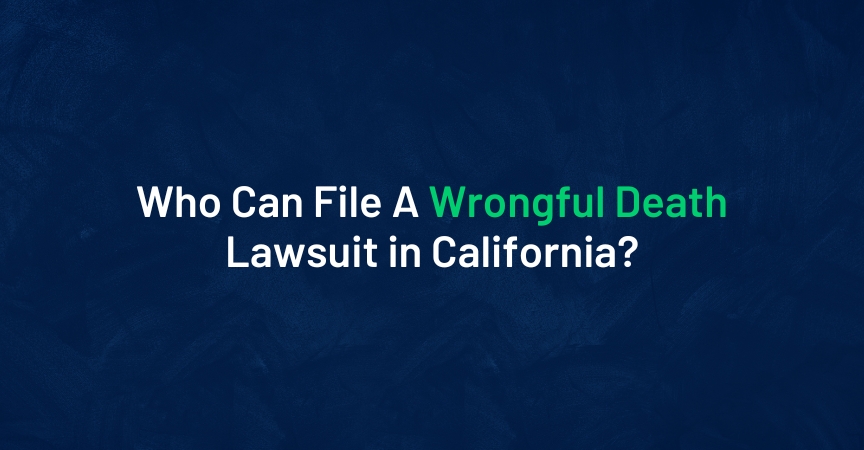In 2021, California’s fatal injury rate reached an all-time high of 56.1 unintentional deaths for every 100,000 individuals. These deaths resulted from car accidents, workplace injuries, drownings, fires, and falls, among other causes.
When negligence plays a role in a person’s death, immediate family members of the victim have the legal right to pursue a wrongful death lawsuit. However, California law strictly regulates who is able to file such a claim and seek damages on behalf of the victim. Hiring an experienced wrongful death attorney to handle your claim is the best way to ensure your family follows all state laws and is able to receive maximum compensation.
Filing a Wrongful Death Lawsuit in California
A wrongful death lawsuit may only be filed if the death of an individual was caused by the negligence or intentional actions of another person or company. The plaintiff must be able to prove that the death of their loved one was a direct result of said negligence. A successful wrongful death case can result in financial compensation for the economic losses including medical expenses, lost wages, and rehabilitation.
Who can File a Wrongful Death Lawsuit?
California laws limit who can file a claim in a wrongful death incident. Before pursuing a lawsuit, speak to a knowledgeable wrongful death attorney who can help you understand the next best steps to take for your specific situation.
Priority grouping determines the eligibility of a person to file a wrongful death claim. All options must be exhausted before eligibility proceeds to the next grouping.
- Spouse
If married at the time of their death, legal rights pass directly to the surviving spouse or domestic partner. The spouse has the right to accept or waive their right of priority and the court also has the right to deny eligibility. - Children & Grandchildren
If there is no surviving spouse of the decedent, the surviving children of the decedent may accept eligibility to file a claim. “Children” refers to biological children, fully adopted children, and stepchildren. Grandchildren may also be eligible if there are no surviving children. If the child or children are minors, the court may appoint a representative to file a wrongful death claim on their behalf. - Heirs
If there are no surviving family members, a wrongful death lawsuit can be brought by anyone “who would be entitled to the property of the decedent by intestate succession.” (Cal. Civ. Proc. Code § 377.60 (2023)). - Dependents
In California, those who were financially dependent on the deceased can also bring a wrongful death lawsuit. This includes minor children who lived in the same household, or parents and legal guardians of the deceased who can demonstrate their financial dependence on the deceased. - A Legal Representative
An executor of the deceased estate may be in place to file a claim on behalf of the decedent and their surviving family. As the administrator of the estate, an executor has a legal obligation to act in the best interests of the estate. A legal representative may be able to seek compensation for both economic and non-economic damages such as pain and suffering experienced by the deceased prior to their death.
Speak to a California Wrongful Death Attorney Today
California law allows family members to seek financial and emotional closure by pursuing a wrongful death lawsuit following the death of a loved one due to negligence or the wrongful act of another person. Wrongful death lawsuits are among the most complex to litigate and applying a claimant’s eligibility to pursue a lawsuit adds to the challenge of such cases. Working with an experienced attorney who can advocate for your rights and guide you through the claims process is essential.
Rodriguez & Associates is a recognized leader in handling wrongful death cases across the state of California. Contact our team of award-winning attorneys today to discuss your case and identify your optimal path to full financial recovery.
